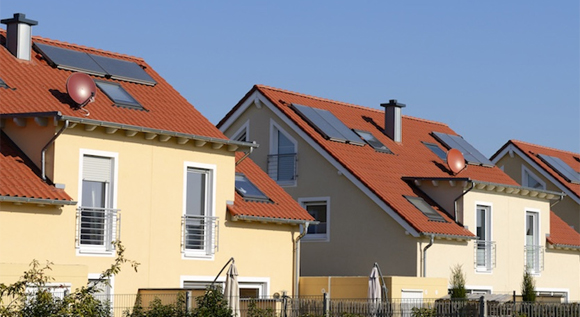Federal Minister Habeck on heating using renewables
The heating transition is a hot topic in Germany: to foster this transition, renewable energy is to cover at least 65% of the energy used in new heating systems.
 © BMWK
© BMWK
We use around one third of our energy for heating and cooling and we still use too much fossil fuel in this sector. To this day, 80% of all houses and flats in Germany heat using gas, oil or coal. To change this, the Federal Government launched the revision of the Buildings Energy Act on 19 April 2023. The Act stipulates that all newly installed heating systems are to generate at least 65% of their heat from renewable energy from 2024.
One target – many paths
The draft legislation allows building owners to choose which technology they want to use to meet the requirements for heating with renewables. Connecting to a heat network or installing a heat pump is also possible, as is heating using a solar thermal system or a direct electrical heating system. The installation of a biomass heating system, a hybrid heating system supplemented with fossil fuel, or a gas heating system that is operated using at least 65% biogas or hydrogen is also permitted.
New funding concept for renewable heating
Parallel to this, the Federal Government has agreed on a new funding concept for renewable heating. It is based on the existing federal funding for energy-efficient buildings (BEG).
This means that people who receive housing benefits, and are thus particularly in need of support, and homeowners with particularly old heating technology can receive the highest available bonus of 20%. For instance, those who switch directly to renewable heating when their system breaks down will receive a bonus of 10%.

